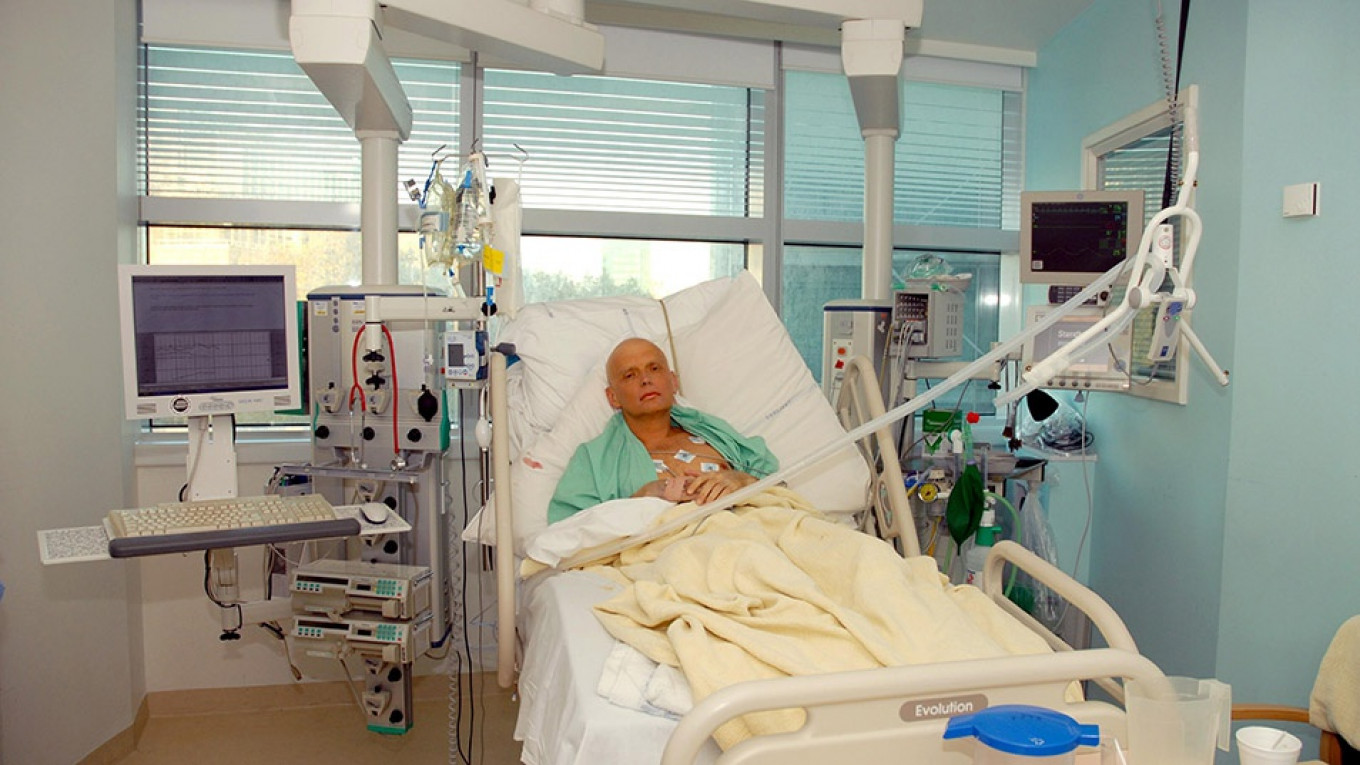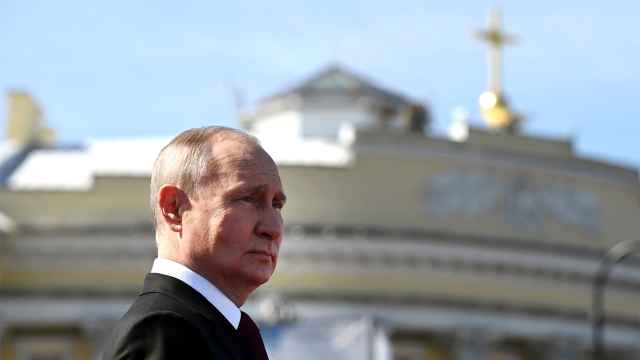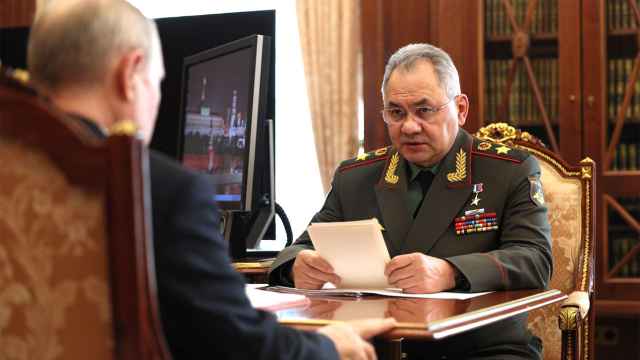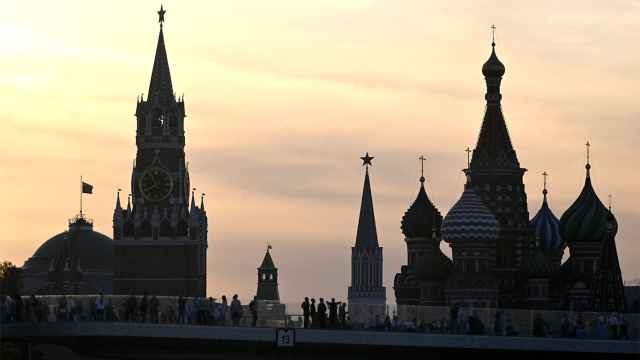Just as Russian President Vladimir Putin announced that the two men the U.K. accuses of being Russian military intelligence agents sent to poison ex-spy Sergey Skripal in March are “civilians” who have done “nothing special or criminal,” another possible poisoning case landed in his lap. Pyotr Verzilov, an anti-Putin activist and producer of the political punk band Pussy Riot, was hospitalized in Moscow with suspicious symptoms.
Even though poisons, both chemical and biological, have long been used by intelligence services the world over to attack all kinds of enemies — leaders of hostile states, terrorists, defectors, dissidents — what’s happening now with a multitude of proven and suspected Russian cases means the Putin regime has taken the practice beyond any reasonable limits. It is doing more damage to Russia’s reputation and international standing than any individual regime critics and enemies ever could.
Verzilov, who is 30 years old, is the publisher of the anti-regime website Mediazona and a daring action artist; in July, he and a group of women, all dressed in police uniforms, rushed onto the field during the football World Cup final in Moscow, before being dragged off. It’s impossible to say with any certainty yet whether Verzilov has been poisoned. The symptoms, as described by his girlfriend Veronika Nikulshina, included the loss of eyesight, the ability to walk straight and speak coherently; she suspects foul play. As of this writing, Verzilov was in hospital in grave condition.
Deliberate poisoning was never definitively proven in a number of other prominent cases. Anti-Putin activist Vladimir Kara-Murza, who was recently a pallbearer at Senator John McCain’s funeral, came down with the same symptoms — vomiting and heart palpitations, and then a coma — twice, in 2015 and 2017.
Doctors diagnosed poisoning but couldn’t identify its cause. An unknown compound possibly akin to gelsemium, a rare plant poison, was found in the body of Russian whistleblower Alexander Perepilichny, who died of a heart attack while jogging in the U.K. in 2012. Friends of Badri Patarkatsishvili, a business partner of Putin’s arch-enemy Boris Berezovsky, who died of a heart attack in the U.K. in 2008, have long suspected poisoning, too; they’ve been demanding recently that his body be exhumed.
At this point, clear evidence — and a conclusion by a British judge to back it up — only exists in the case of Alexander Litvinenko, the former Russian counterintelligence officer poisoned with polonium in London in 2006. Andrei Lugovoy, who, Judge Robert Owen concluded, poisoned Litvinenko, now serves as a Russian parliament deputy. In a 2009 article on the use of chemical and biological weapons in assassinations, Shlomo Shpiro, an intelligence expert at Bar-Ilan University in Israel, pointed to deniability as one of the perceived advantages of the technique.
“Chemical and biological weapons were used for assassinations because of their invisibility, both in the ease of application to the target and in the difficulty of establishing the cause of death,” Shpiro wrote.
Litvinenko’s killing established that the current Russian government has continued the series of poisonings that apparently began in 1957 with the Munich murder of Ukrainian exile Lev Rebet, whom KGB agent Bogdan Stashinsky killed with a special device that sprayed vaporized prussic acid (Stashinsky later defected and told the story).
Bulgarian dissident Georgi Markov was poisoned with the sharpened tip of an umbrella in 1978 — an operation its chief planner, KGB General Oleg Kalugin, later wrote about in his memoirs. The chain continued after the Soviet Union fell apart. In 2003, investigative journalist Yury Schekochikhin died of poisoning, apparently with thallium, a highly toxic heavy metal, and the following year his colleague Anna Politkovskaya survived a poisoning after drinking a cup of tea; she was shot dead in 2006.
One argument for poisonings is plausible deniability, but the Litvinenko case did away with that. And after the Skripal poisonings, government foul play is the default hypothesis; hence a quick, apprehensive reaction to the Verzilov case in the media and on social networks.
While it’s possible that the deviousness of the methods, like the use of a fake Nina Ricci perfume bottle in the Skripal case, and the prolonged suffering undergone by the known and suspected assassination targets, may be meant to instill fear in regime foes, Putin’s opponents are already wary.
They know anything can befall them, from arbitrary imprisonment to a hail of bullets like the one that mowed down former Deputy Prime Minister Boris Nemtsov in 2015.
Poisonings also carry a high risk of failure — victims often survive, or the assassins have second thoughts, as in the 1954 case of KGB officer Nikolai Khokhlov, who was sent to Frankfurt to kill a dissident but instead turned himself over to the authorities. The scandals and failures are, according to Shpiro, the biggest downside to using poison in assassinations.
“Chemical and biological weapons do not offer enough substantial benefits in intelligence work to offset the considerable political risk in their use,” Shpiro wrote.
In the West and Israel, poisonings appear to have been abandoned long ago. The British attempt to kill Egyptian President Gamal Abdul Nasser with poisoned chocolates, the U.S. designs to eliminate Cuban leader Fidel Castro by putting thallium-laced cream on his shoes or potting a bothulinum toxin in his cigars, a French plot to use thallium against Cameroonian insurgent Felix-Roland Mounie — all these took place in the 1950s and early 1960s. The U.S. hasn’t been known to dabble in such techniques since the 1970s. Israel’s failure to kill Hamas operative Khaled Mashal in Jordan by spraying him with a toxic substance from a soda can dates back to 1997.
That Putin’s Russia apparently hasn’t given up on the risky and politically messy way of trying to get rid of its enemies is an embarrassing anachronism. The poisonings are dangerous beyond the risk they imply for Putin opponents. They will hang over Russia’s international reputation long after Putin is gone, unless his successors have the courage to confess and release information about the assassinations.
They also, as Shpiro warned in his paper, create an incentive for terrorists to copy the methods used by intelligence services, especially since the Russian government has set itself up as the prime suspect in poisoning cases. Even if Putin will never admit the Kremlin’s involvement, the evil series must end: It’s feeding the growing international perception of Russia as a terrorist state.
If anything, Putin’s intelligence services should protect the regime’s opponents from any further harm that could suggest the use of chemical or biological weapons.
Leonid Bershidsky is a Bloomberg Opinion columnist covering European politics and business. He was the founding editor of the Russian business daily Vedomosti and founded the opinion website Slon.ru. The views and opinions expressed in opinion pieces do not necessarily reflect the position of The Moscow Times.
A Message from The Moscow Times:
Dear readers,
We are facing unprecedented challenges. Russia's Prosecutor General's Office has designated The Moscow Times as an "undesirable" organization, criminalizing our work and putting our staff at risk of prosecution. This follows our earlier unjust labeling as a "foreign agent."
These actions are direct attempts to silence independent journalism in Russia. The authorities claim our work "discredits the decisions of the Russian leadership." We see things differently: we strive to provide accurate, unbiased reporting on Russia.
We, the journalists of The Moscow Times, refuse to be silenced. But to continue our work, we need your help.
Your support, no matter how small, makes a world of difference. If you can, please support us monthly starting from just $2. It's quick to set up, and every contribution makes a significant impact.
By supporting The Moscow Times, you're defending open, independent journalism in the face of repression. Thank you for standing with us.
Remind me later.








